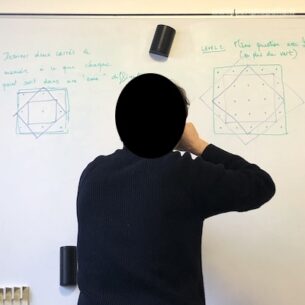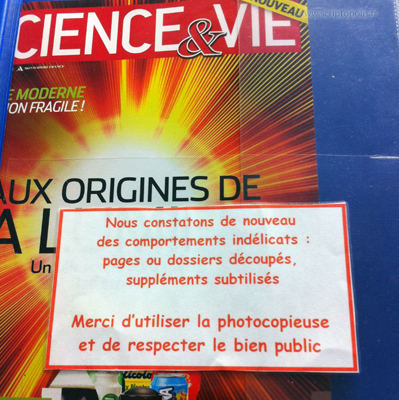Accessing information
Libraries have been constituting crucial repositories of information since centuries. After being locations reserved to particular powerful elites (clergy or royal courts) that restricted the circulation of certain books or even censured the content of others, libraries have been progressively places which access was enlarged to the most. Nowdays, one can find there marvelous ancient books relating classical theories or displaying exceptional pictures, paintings and drawings that recall some of fundamental aspects of modern societies. One can also find journals that publish and discuss recent discoveries at the forefront of scientific research. Even if some libraries remain restricted areas, dedicated to so-called specialists or members of particular circles, it is eventually possible to have access to a large body of knowledge, sorted out in many different topics and stored in bookcases. And the advent of internet has opened new ways for accessing online resources of all kinds.
Despite the dramatically increase of a wonderful information society, knowledge is still limited in its circulation so that it would be available to everyone at all time. While entering a library to borrow books, a scriptopolian was naturally attracted by the notice put on the cover of a journal specialized in scientific vulgarization. It reads to “use the copymachine” instead of cutting off pages or entire parts of the issue. Information is stored in libraries in order to remain accessible from one reader to the next. One may enjoy it as a personal property, but only in accordance with appropriate behavior that ensures “to respect the public good”. In the last decade, numerous academics have underlined how much science is under threat from pharmaceutical firms and from the implementation of new public management tools in universities governance and evaluation. Whether false or true, these claims favor big explanations. Doing so, they tend to disregard little gestures and “unscrupulous behaviors” that undermine the ideal of science based on free information day after day.







